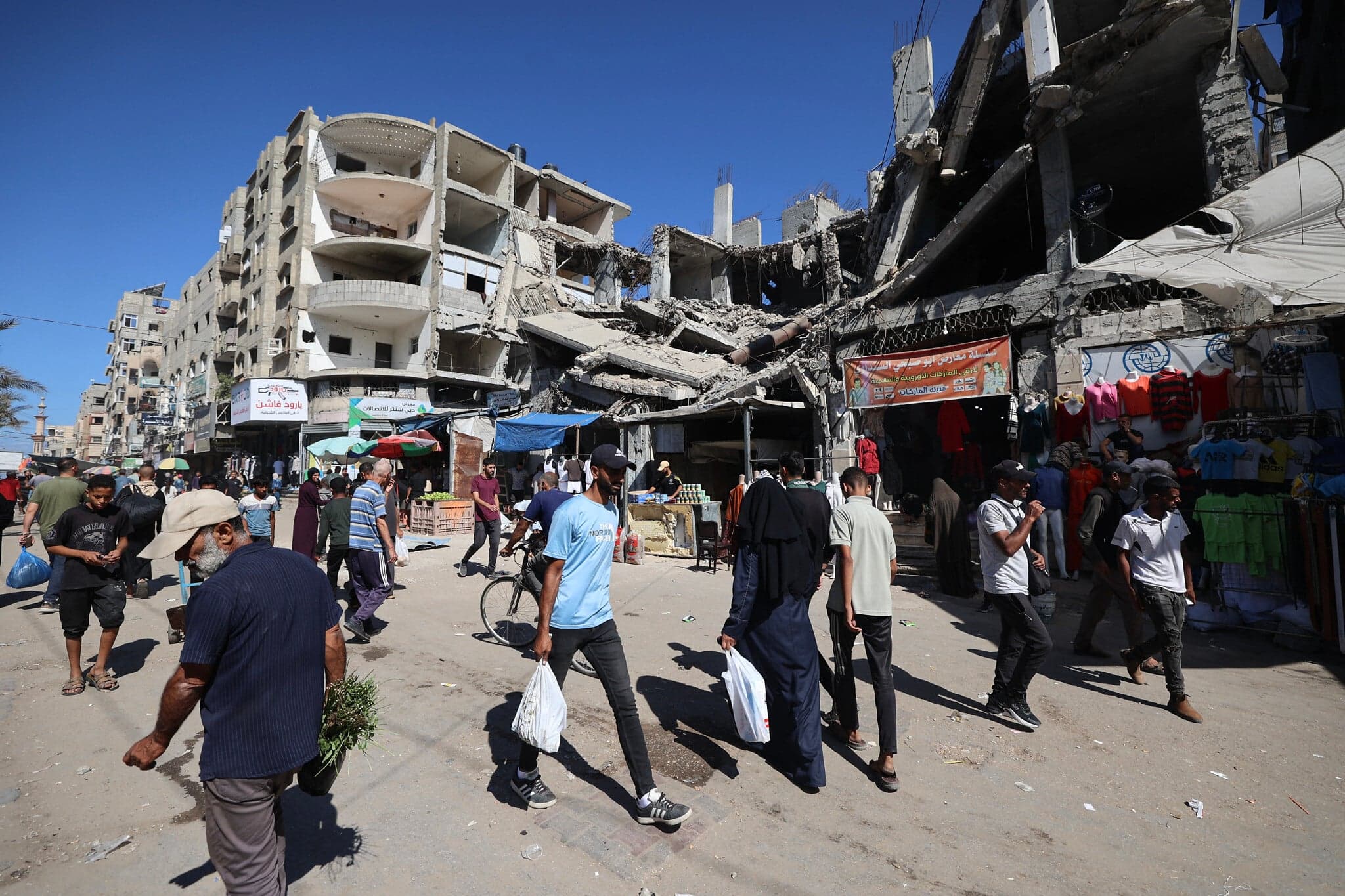Two Palestinians were killed by Israeli gunfire in northern Gaza on Wednesday, according to Palestinian media reports.
The IDF said in a statement that troops had opened fire on several suspects who crossed the so-called Yellow Line — to which the military withdrew under the terms of the current ceasefire — in Gaza City’s eastern Shejaiya neighborhood.
The suspects had approached Israeli forces, “constituting a violation of the agreement,” the army said, adding that troops opened fire “to remove the threat.”
The incident marked the second day in a row that IDF troops killed Palestinians who it alleged crossed the “Yellow Line,” with five killed Tuesday by an Israeli drone after crossing the boundary in Gaza City, and another killed in a separate drone strike on a gathering in the al-Fukhari area east of Khan Younis in southern Gaza.
In all cases, the IDF said its troops acted in accordance with the terms of the ceasefire deal, which went into effect on Friday at noon.
The Rafah Crossing between Egypt and Gaza is slated to open on Thursday, overseen by the European Union Border Assistance Mission, a diplomatic source told The Times of Israel on Wednesday. It will be open to both people and vehicles, the source said.
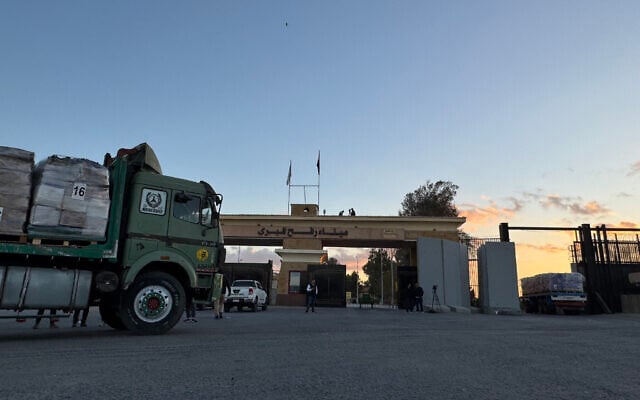
The declaration came after an Israeli security official told The Times of Israel on Wednesday that the crossing would not be opening that day, contrary to some reports.
“Preparations are ongoing for its opening for the exit and entry of Gazans only,” the official said.
Earlier Wednesday, Reuters video showed a first group of trucks moving from the Egyptian side of the border into the Rafah crossing at dawn, some tankers carrying fuel and others loaded with pallets of aid. The trucks did not cross into the Gaza Strip.
Aid from Gaza coming via Egypt generally gathers at the Rafah Crossing before being diverted to the Nitzana or Kerem Shalom crossings from Israel, since Rafah has been heavily damaged.
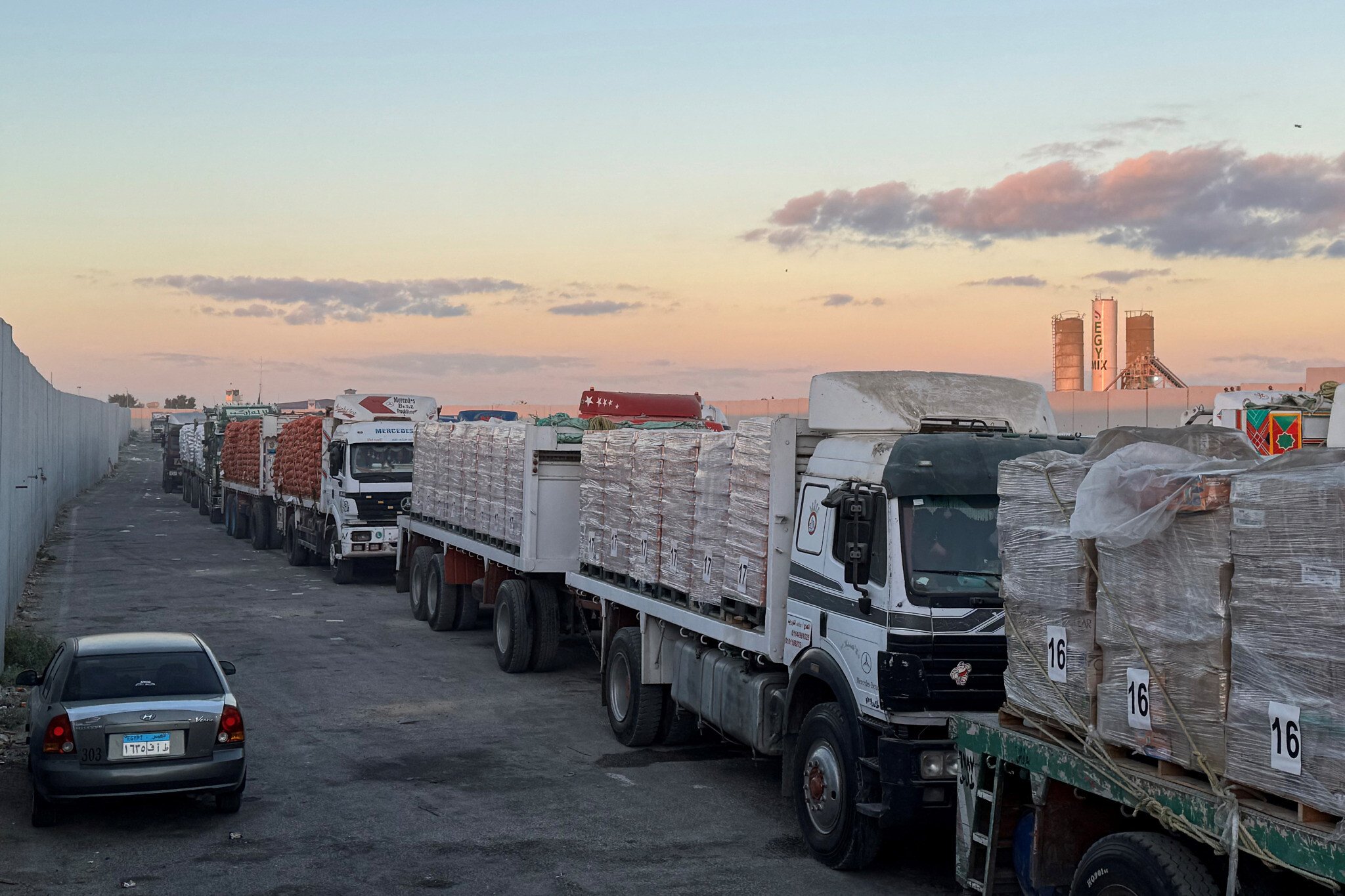
The official also said that humanitarian aid continues to enter Gaza as usual via the Kerem Shalom Crossing and other crossings, following security inspection by Israeli authorities.
The Kan public broadcaster reported that Wednesday’s aid deliveries would include food, medical supplies, fuel, cooking gas and equipment to repair vital infrastructure.
On Tuesday, Israel said it would not reopen the crossing as a sanction against Hamas for its slow release of the bodies of hostages, despite being required to do so under the agreement, though it appears that the crossing was not ready to be opened Wednesday anyway.
Israel is required to allow at least 600 aid trucks to enter Gaza each day.
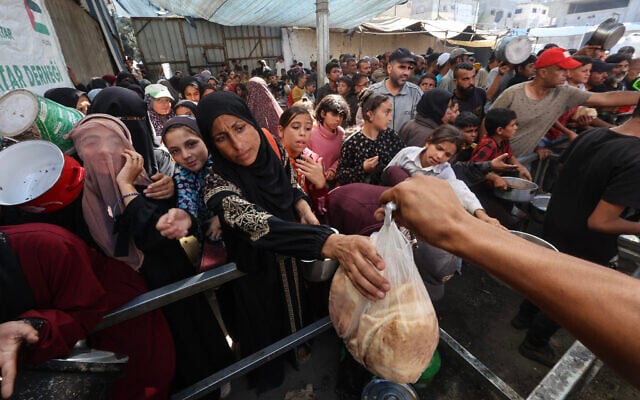
Following the dispute over aid entry after the terror group failed to hold up its end of the agreement and return all the bodies of dead hostages it has in its possession, National Security Minister Itamar Ben Gvir called for a complete halt in aid until the bodies are returned.
“Enough with the disgrace,” Ben Gvir said in a statement Wednesday. “Moments after opening the crossings to hundreds of trucks, Hamas very quickly returned to its known methods — to lie, to cheat, and to abuse families and the bodies. This Nazi terror understands only force, and the only way to deal with it is to erase it from the face of the earth.”
The far-right minister said Tuesday night that Hamas is “playing games” by delaying the return of the bodies of Israeli hostages, calling on Prime Minister Benjamin Netanyahu to issue “a clear ultimatum to Hamas: if you do not immediately return all the bodies of our fallen and you continue with these delays, we will immediately halt all aid supplies entering the Strip.”
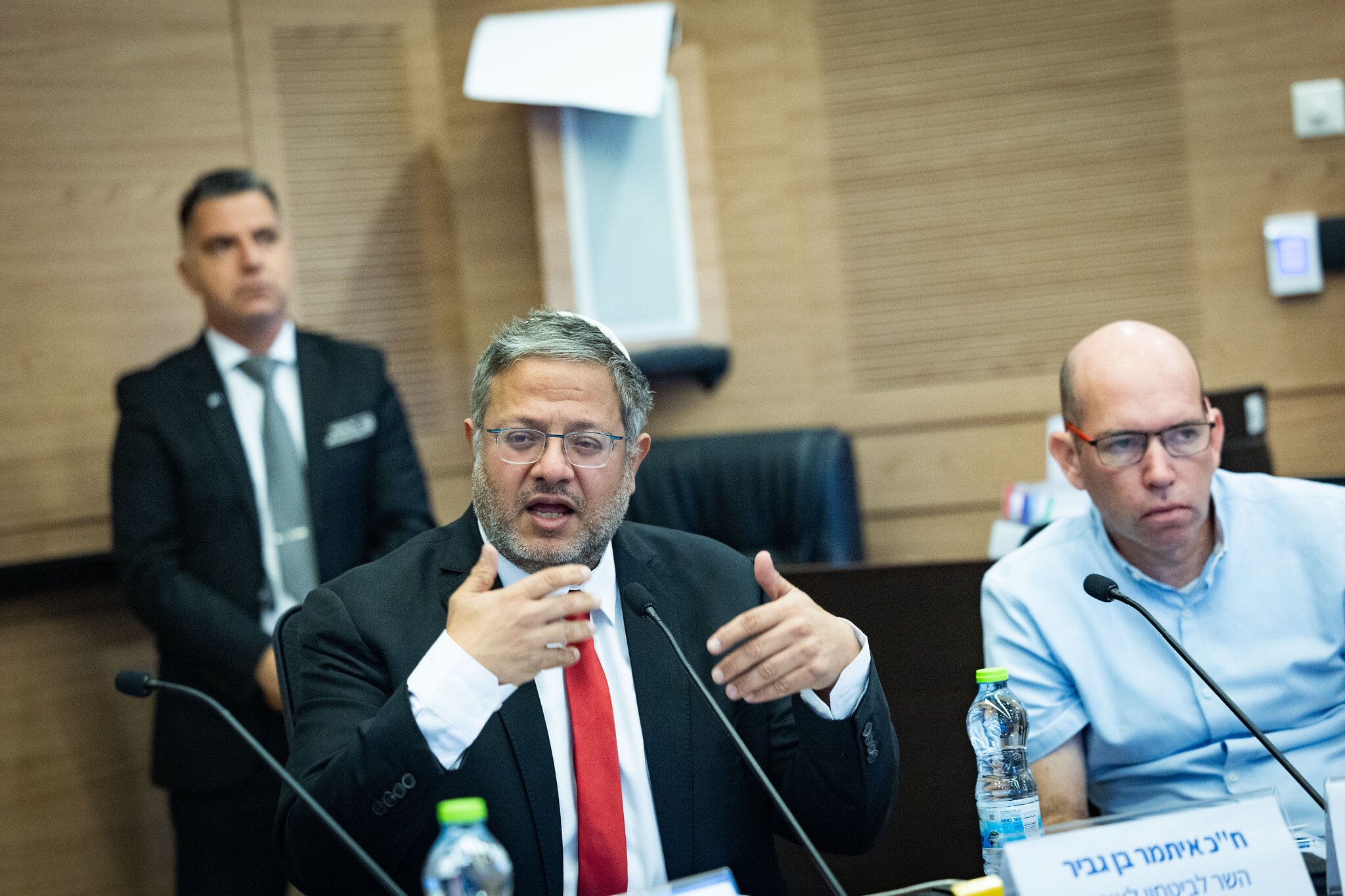
Under the ceasefire agreement, Hamas was required to return all the bodies in its or other terror groups’ possession, and share any information it has on other slain hostages, within the same 72-hour timeframe. The terror group has said it would be difficult to return all the dead hostages at that time due to the field conditions in Gaza.
After the return of three dead hostages Tuesday night, alongside a body that Israel said is likely a Palestinian man, the terror group currently still holds the bodies of 21 dead hostages. An additional five bodies are expected to be handed over on Wednesday evening.

